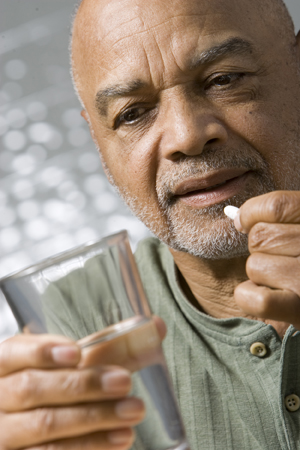Managing Pain with Oral Medicines After Surgery
Once you’re home after surgery, you may have some pain. Even minor surgery causes swelling and breakdown of tissue. When it comes to managing pain, the tips you may have learned in the hospital also work at home. To get the best pain relief possible, remember the points below.
Special note
Be sure to follow any specific postsurgery instructions from your healthcare team.
Use your medicine only as directed
-
If your pain is not relieved or if it gets worse, call your healthcare provider.
-
If pain lessens, try taking your medicine less often or in smaller doses.
-
Nonmedicine methods of pain relief are also useful and may help your pain medicine work better. Ask your healthcare provider for suggestions.

Remember that medicines need time to work
-
Most pain relievers taken by mouth need at least 20 to 30 minutes to start to work. They may not reach their maximum effect for close to an hour.
-
Take pain medicine at regular times as directed. Don’t wait until the pain gets bad to take it.
Time your medicine
-
Try to time your medicine so that you take it before starting an activity, such as dressing or sitting at the table for dinner.
-
Taking your medicine at night may help you get a good night’s rest.
Eat lots of fruit and vegetables
-
Constipation is a common side effect with some pain medicines. Eating fruit, vegetables, and other foods high in fiber can help.
-
Drink plenty of fluids.
-
Talk to your healthcare provider about taking a preventive bowel regimen. This may include stool softeners or laxatives.
Don't drink alcohol while taking pain medicine
Important
Don't drive or use machinery while taking pain medicines that can cause drowsiness.
Note these other precautions
-
Ask your healthcare provider or pharmacist how to get rid of your pain medicines safely when you stop using them.
-
Never share your pain medicines with anyone.
-
Store your medicines in a safe place so they can’t be stolen. If you think your medicine has been stolen or lost, tell your healthcare provider right away.
Online Medical Reviewer:
Callie Tayrien RN MSN
Online Medical Reviewer:
Jimmy Moe MD
Online Medical Reviewer:
Tara Novick BSN MSN
Date Last Reviewed:
12/1/2022
© 2000-2024 The StayWell Company, LLC. All rights reserved. This information is not intended as a substitute for professional medical care. Always follow your healthcare professional's instructions.